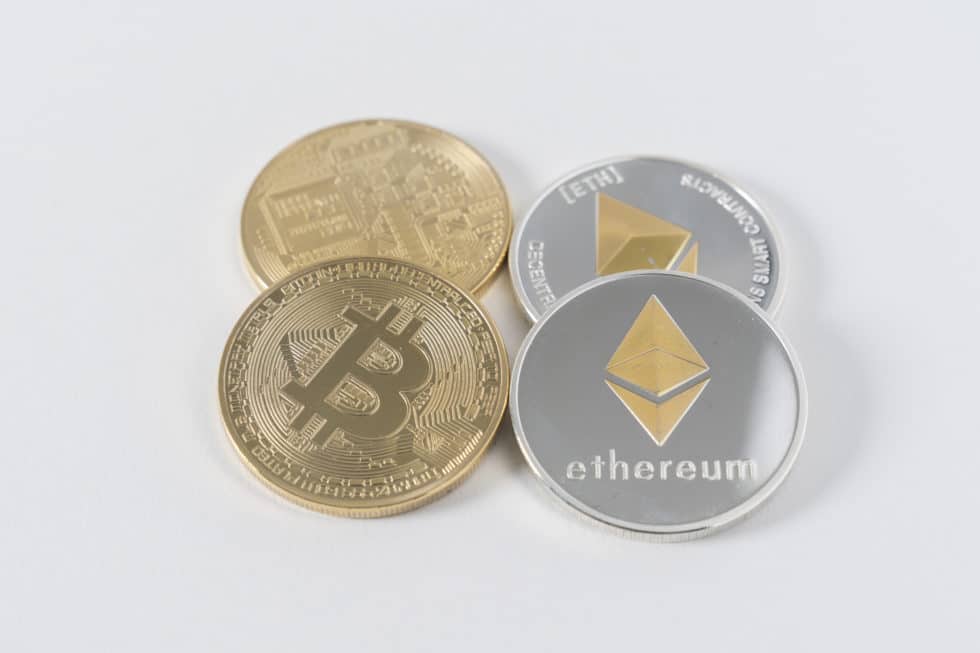Bitkom veröffentlicht Infopapier „Digitaler Euro auf der Blockchain“
Nicht nur praktisch alle Zentralbanken weltweit diskutieren das Thema Digitales Zentralbankgeld, sondern auch Geschäftsbanken, Technologie- wie Finanzunternehmen und natürlich die Politik sind in der weitreichenden Diskussion um Vor- und Nachteile von CBDCs involviert. Eines scheint dabei allen klar: CBDCs haben das Potenzial, unser Finanzsystem grundlegend zu verändern.
Digitale Zentralbankwährungen (engl. Central Bank Digital Currencies, CBDCs) auf der Blockchain sind ein seit 2018 intensiv diskutiertes Thema. Eine im Januar 2020 von der Bank für Internationalen Zahlungsausgleich (BIZ) veröffentlichte Studie zeigt, dass 10 % der weltweiten Zentralbanken kurzfristig und 20 % mittelfristig die Einführung einer CBDC für die breite Öffentlichkeit (sog. Retail CBDC) planen. Bereits seit Mitte April 2020 testet die People’s Bank of China zunächst noch lokal begrenzt ihre digitale Zentralbankwährung. Doch nicht nur praktisch alle Zentralbanken weltweit diskutieren das Thema, sondern auch Geschäftsbanken, Technologie- und Finanzunternehmen und natürlich die Politik sind in der weitreichenden Diskussion um Vor- und Nachteile durch CBDCs involviert. CBDCs beziehungsweise der digitale Euro (in diesem Text gemeint: CBDC für den Euro-Raum) haben das Potenzial, unser Finanzsystem grundlegend zu verändern. Die Folgen einer Einführung werden teils als große Chance, teils als unbedingt zu vermeidendes Risiko bewertet.
In der aktuellen Diskussion rund um den digitalen Euro mangelt es an einem gemeinsamen finanzwirtschaftlichen, regulatorischen sowie technologischen Grundverständnis. Dieser Mangel zeigt sich in vielen Facetten: Wenn beispielsweise von einem »digitalen« oder einem »programmierbaren« Euro gesprochen wird, muss es sich nicht zwingend um eine CBDC handeln.

Es könnte auch Geld gemeint sein, das durch private Organisationen (z. B. Banken, E-Geld-Institute oder andere FinTechs) emittiert wird. So wie das von Facebook initiierte und von einem Konsortium an Privatunternehmen geführte Projekt Libra, das nach heftigem Gegenwind der Politik kürzlich neu ausgerichtet wurde und seinen Start noch in diesem Jahr plant.
Häufig, und so auch in dem Bitkom Infopapier, wird die Blockchain-Technologie, die zur Familie der Distributed Ledger Technologien (DLT) gehört, als technische Basis für CBDCs und den digitalen Euro gehandelt. Theoretisch sind aber auch CBDCs möglich, die nicht auf DLT basieren. Auch zwischen den Begriffen Währung und Geld muss unterschieden werden: Bei einer Währung handelt es sich um ein gesetzliches Zahlungsmittel, also um einen »de jure«-Standard. Der Begriff Geld hingegen beschreibt einen »de facto«-Standard, sobald es sich um ein akzeptiertes Tausch-mittel handelt, selbst wenn es nicht gesetzliches Zahlungsmittel ist. Ein Beispiel: Der Euro ist eine Währung; der digitale Euro wäre eine digitale Variante dieser Währung. Beim Projekt Libra handelt es sich hingegen eher um eine Vision von digitalem Geld – nicht Währung. Diese Beispiele machen deutlich, dass Aufklärung rund um das Thema CBDCs und digitaler Euro notwendig ist.
Deswegen möchten der Verband mit dem Infopapier zuerst eine begriffliche Abgrenzung zwischen Zentralbankreserven, Bargeld, Geschäftsbankengeld, E-Geld, Kryptowerten, Stablecoins und digitalem Zentralbankgeld (CBDC) vornehmen. Darüber hinaus soll das Papier den aktuellen Diskussionsstand zum digitalen Euro auf der Blockchain wiedergeben und zentrale Fragestellungen adressieren: Welche Ausgestaltungen eines digitalen Euros gibt es? Welche Motive gibt es für seine Einführung? Wie kann man mit befürchteten Risiken umgehen? Und warum ist die Blockchain-Technologie so vielversprechend für den digitalen Euro?
Mit diesem Infopapier möchte der Bitkom dazu beitragen, dass die Diskussion in Wirtschaft, Gesellschaft und Politik intensiviert wird und die Schlagkraft entfaltet, die es braucht, um weltweit »ahead of the curve on digital currency« zu sein, um es mit den Worten der neuen EZB-Präsidentin Christine Lagarde auszudrücken. Gerade in der aktuell breit geführten Debatte um die digitale Souveränität Europas darf nicht übersehen werden, dass China derzeit in der Entwicklung einer CBDC führend ist.
Währungen können in einer digitalen und globalisierten Welt zu einem kompetitiven Wettbewerbsvorteil für Wirtschaftsstandorte führen. Und zwar einerseits durch das Heben von Prozesseffizienzen und andererseits durch neue Geschäftsmodelle, die ermöglicht werden. Die Chancen eines digitalen Euros dürfen daher nicht bloß politisch, sondern müssen auch wirtschaftlich analysiert werden: Der digitale Euro kann wesentlich zu einem innovationsfreundlichen Ökosystem in Europa beitragen.

Der Digitalverband Bitkom warnt davor, dass Europa bei der Diskussion über digitale Währungen international abgehängt wird. Während weltweit Länder bereits mit digitalem Zentralbankgeld experimentieren, fehle in Deutschland und Europa oft noch das Grundverständnis. Aus diesem Grund hat Bitkom heute ein Infopapier „Digitaler Euro auf der Blockchain“ veröffentlicht, um grundlegende Begriffe zu erläutern, Chancen und Risiken zu benennen und so die Grundlage für eine breite öffentliche Debatte zu schaffen. „Aktuell ist China in der Entwicklung einer digitalen Währung führend, daneben gibt es eine Reihe von privaten Initiativen, die bereits am digitalen Geld arbeiten. Auch mit Blick auf die Diskussion über digitale Souveränität muss es uns gelingen, dass Europa eine weltweite Führungsrolle übernimmt“, sagt der Bitkom-Finanzexperte Julian Grigo.
„Digitale Währungen können in einer digitalen und globalisierten Welt zu einem entscheidenden Wettbewerbsvorteil werden. Bei Blockchain-Anwendungen in der Finanzindustrie liegt ein Riesen-Potenzial für Europa – diese Chancen müssen wir nutzen.“
Im Infopapier „Digitaler Euro auf der Blockchain“ werden zunächst grundlegende Begriffe definiert, etwa die Abgrenzung von Geld und Währung oder digitales Zentralbankgeld (CBDC, Central Bank Digital Currency). Danach werden denkbare Ausgestaltungen eines digitalen Euros erläutert sowie auch mögliche Risiken und Herausforderungen dargestellt. Ein gesondertes Kapitel widmet sich den besonderen Chancen, die die Blockchain-Technologie für digitale Währungen bietet.
Dabei geht es insbesondere um schnellere und günstigere Zahlungsabwicklungen, sei es bei länderübergreifenden Transaktionen, bei Mikro-Payments oder bei der Abwicklung von Wertpapieren und anderen Finanzinstrumenten. „Die Blockchain-Technologie als Grundlage eines digitalen Euro bietet eine Vielzahl von Vorteilen. So könnte ein solches programmierbares Geld den Grundstein für eine echte Digitalisierung der Industrie mit Machine-to-Machine-Zahlungen legen“, sagt Bitkom-Blockchain-Experte Patrick Hansen. „Für viele Blockchain Anwendungen im industriellen Kontext ist der Euro auf der Blockchain das fehlende Puzzle-Stück. Europa kann hier weltweit Vorreiter sein, muss angesichts der dynamischen Entwicklungen allerdings das Tempo deutlich erhöhen.“
Das Infopapier „Digitaler Euro auf der Blockchain“ steht zum Download bereit:
Zu den Autoren:
Julian Grigo ist Head of Digital Banking & Financial Services at Bitkom


Patrick Hansen ist Head of Blockchain at Bitkom




